I

Setting up the Client ID and Client Secret
Before you can integrate MBC system with Outlook Calendars, you must set a couple of settings, and the most important of them are “Client ID” and “Client Secret”.
To setup “Client ID” and “Client Secret” go to the Azure portal and under the Azure services find and choose “Azure Active Directory” (if you cannot find it in the first row, click on the “More services” option on the right side and find it).
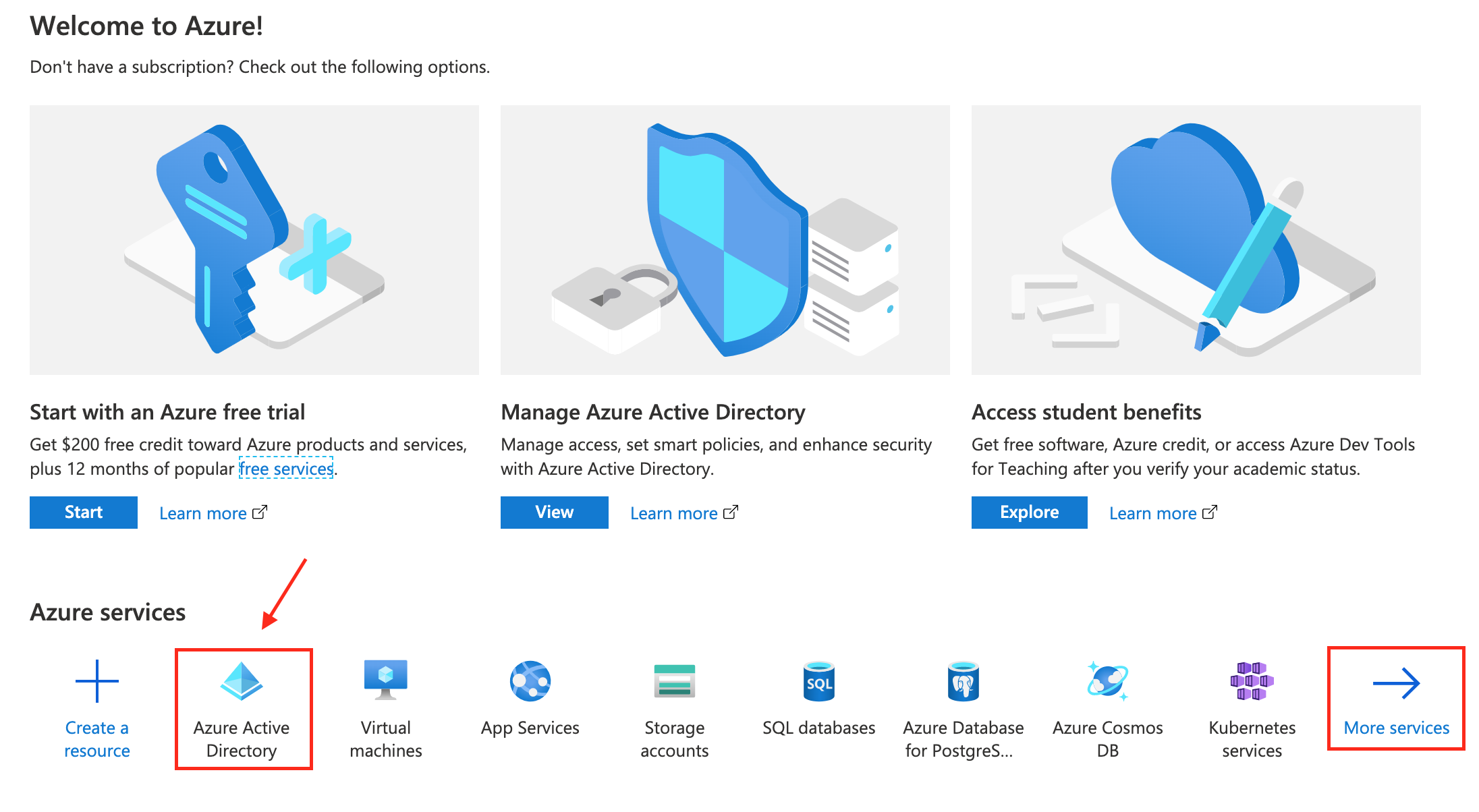
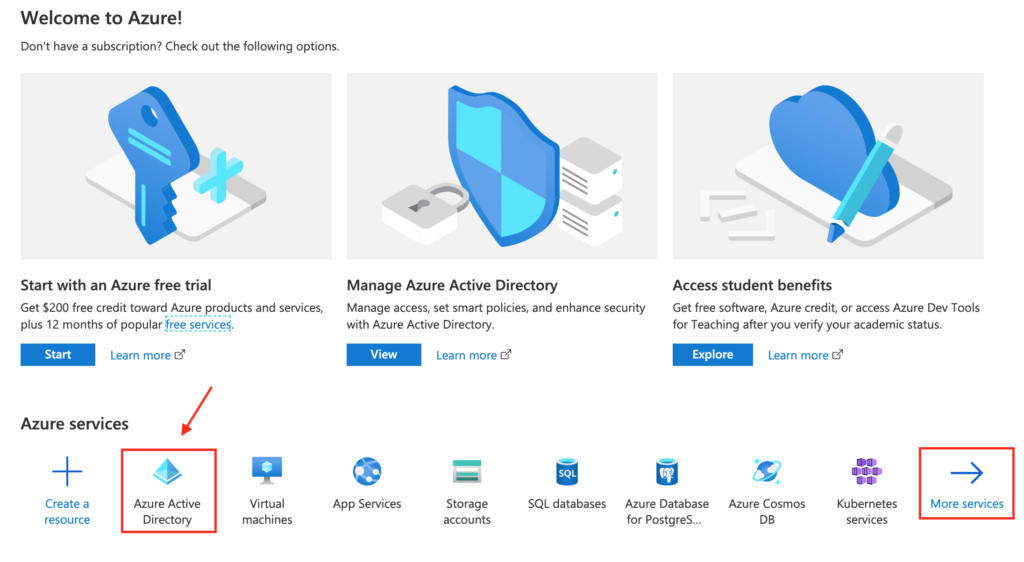
Once you’ve opened the “Azure Active Directory” choose “App registrations” from the menu on the left side and once it opens click on the “New registration” above (take a look at the picture to find these options).
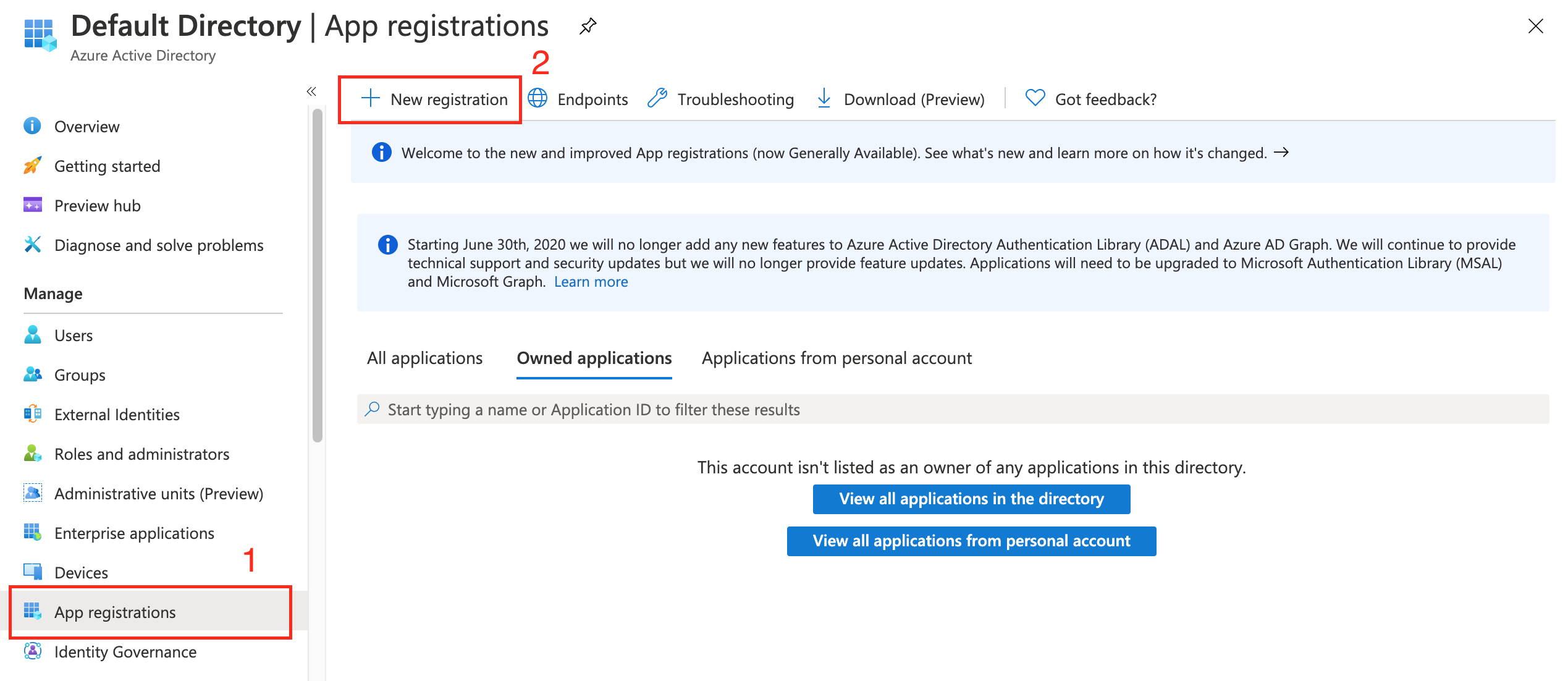
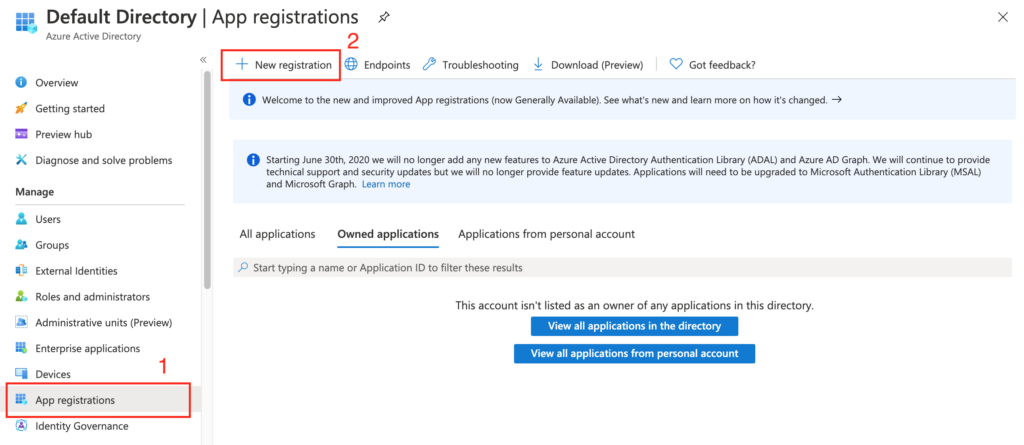
In the “Register an Application” window:
- enter the name for your app,
- in the “Who can use this application or access this API?” check the last option “Accounts in any organizational directory (Any Azure AD directory – Multitenant) and personal Microsoft accounts (e.g. Skype, Xbox)”,
- In Redirect URI choose “Web”, and paste the Redirect URI found in the Outlook Integration Settings on the back-end of our plugin (and if you use the front-end Employee panel and want to allow your employees to connect to their Outlook calendars from there add the URL of the page where you have the employee panel here as well),
- Once you’ve done all this click “Register” and the application will be created.
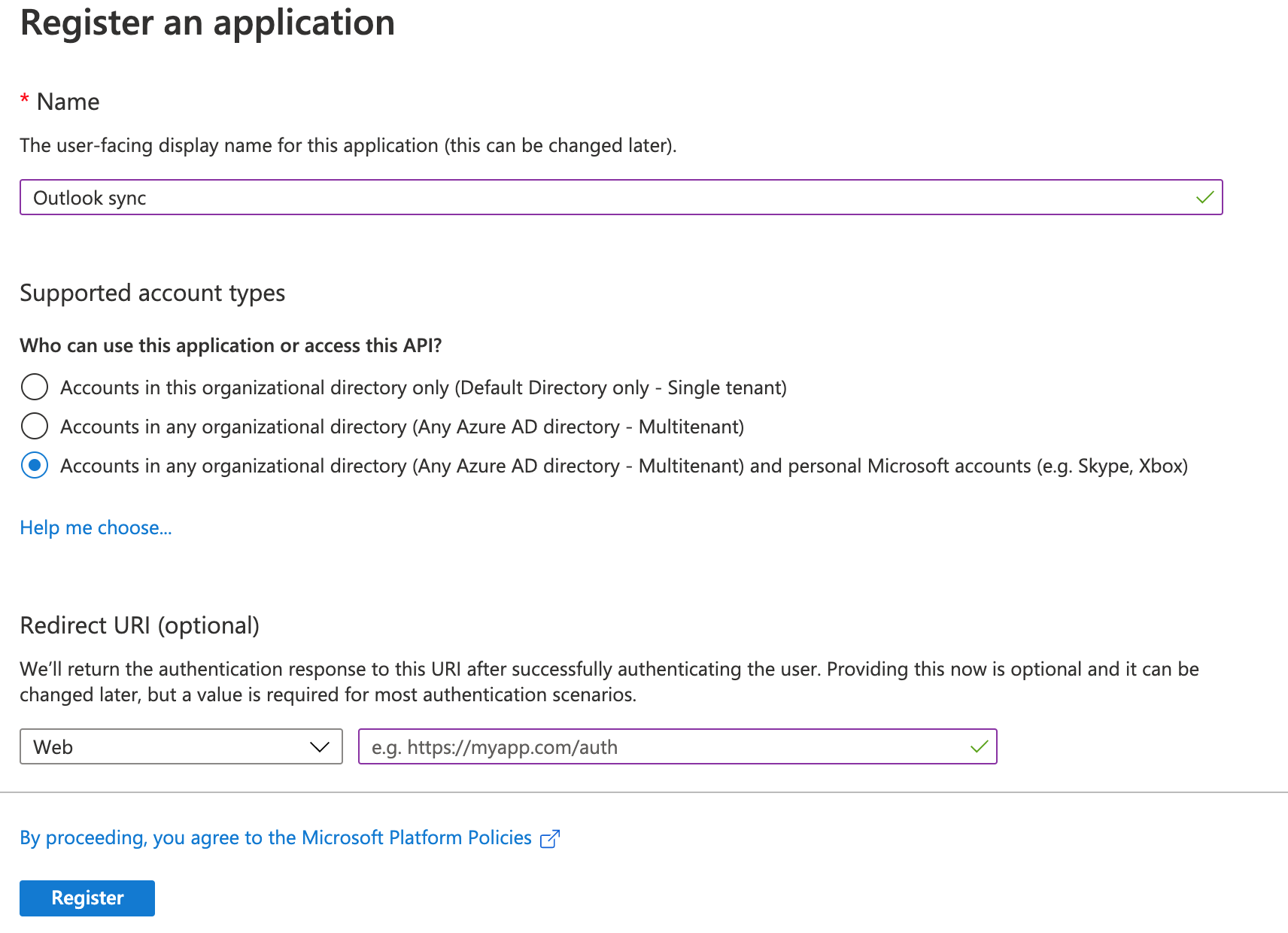
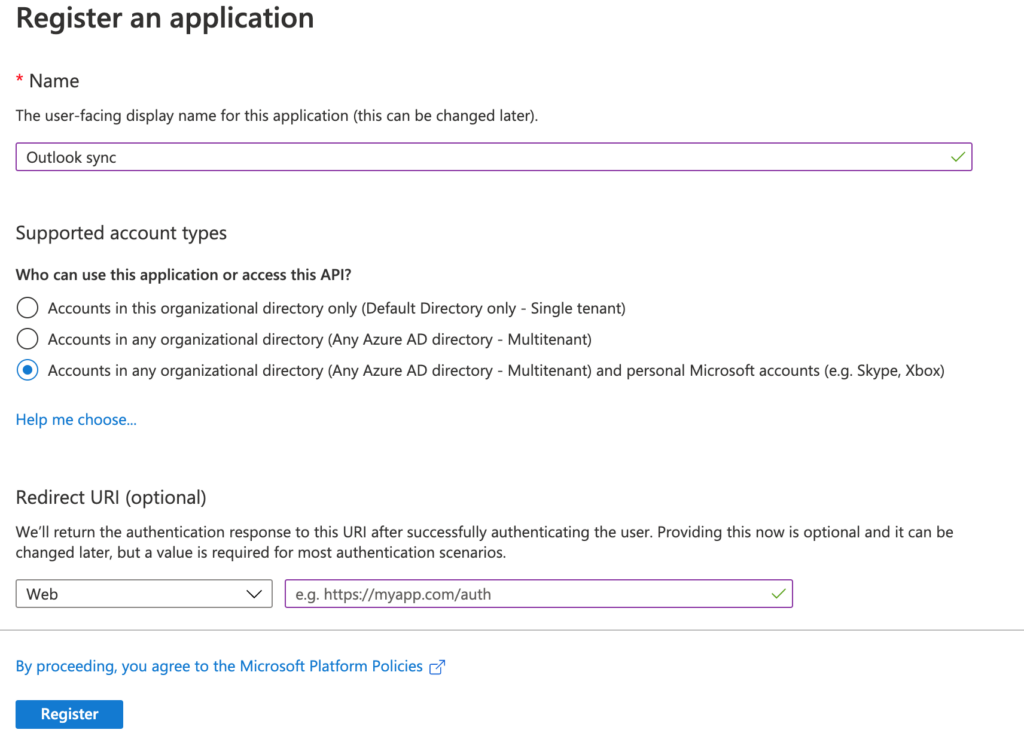
Your created application will open right away and under the application name you will see “Application (client) ID”. Copy this ID and paste it into the field in our Outlook Integration Settings.


Once you’ve done this, choose “Certificates & Secrets” in the left menu and click on the “New Client Secret”.


Add a description and choose “Never” in the Expires part. Once you’ve done click on the “Add” option and your client secret will be created.


Copy the Value of the client secret right away and paste it into our “Client Secret” field in the Outlook Integration Settings.
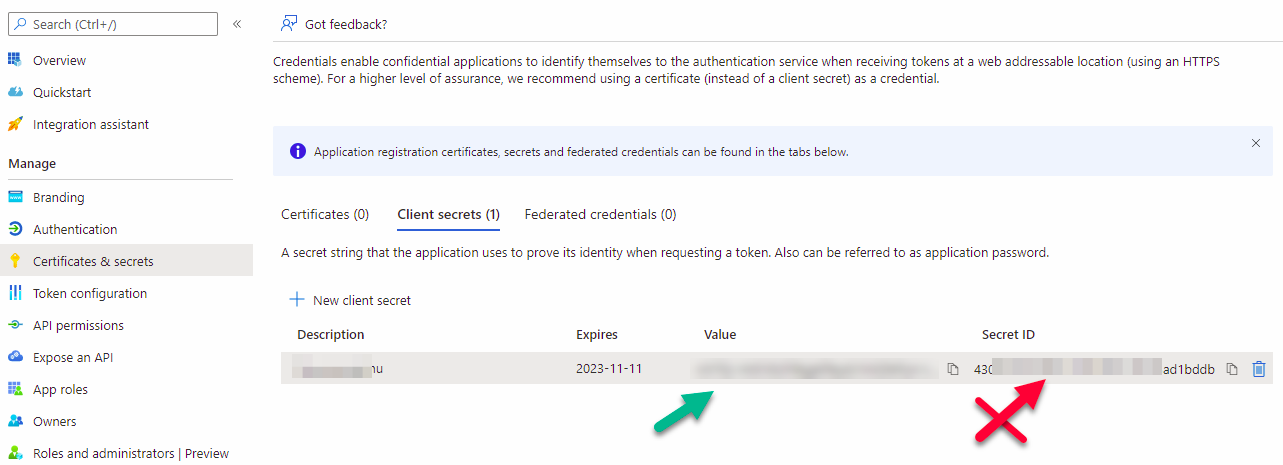
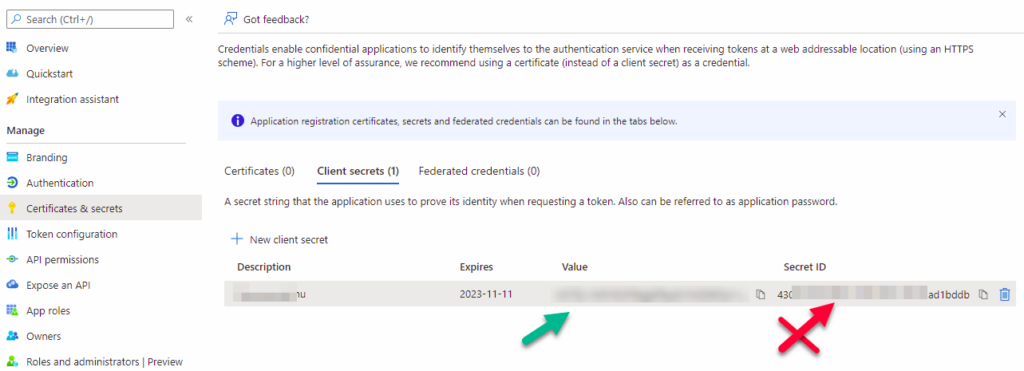
Now that you are done with creating Client ID and Client Secret we can start with other options.
Redirect URI
This is the path in your application that users are redirected to after they have authenticated with Outlook. Add this URI in your Outlook application under “Redirect URIs”. The redirect URI always has the same structure: “https://yoursite.com/wp-admin/”.
If you’re going to allow your employees to connect to their Outlook accounts from the Employee panel, you will need to add the URL of the page where your employee panel is as another redirect URI in Azure. For example, if your employee panel is on https://yoursite.com/employee-panel/ that URL needs to be added as another redirect URI in Azure.
Insert Pending Appointments
When this option is enabled, appointments with ‘Pending’ status will be added to the employee’s Outlook Calendar. By default, the option is disabled which means that only appointments with ‘Approved’ status will be added to the Outlook Calendar.
Remove Outlook Calendar Busy Slots
Enable this option if you want to remove the time slots of the Busy events in your employees’ Outlook Calendars from their work schedules in MBC system. When enabled, time slots in the MBC system Calendar will be removed whenever there is a Busy event in the Outlook Calendar.
Include Buffer time in Outlook events
This option is made for you to choose if the buffer times that you add for each service will be added in the Outlook events. If you enable it, the buffer times for scheduled appointments will be added together with the appointment in the employee’s Outlook Calendar preventing the employee to add an event to the Outlook that would overlap his buffer time of the appointment scheduled in MBC system.
Maximum Number Of Events Returned
Here you can set the maximum number of events that will be returned from your employees’ Outlook Calendar into the MBC system calendar. These events will not be visible as they only affect the available time slots in the MBC system calendar.
Connect employees with their Outlook accounts
Once you’ve completed these settings, there’s one more thing to set on the employees’ side. Each employee should log in and connect to their Outlook calendar for the synchronization to work. To do this they should open the Employee dialog in the back-end of Amelia, or go to the My Profile page on the front-end Employee panel, and click on the button beside the Outlook Calendar option. They will then be redirected to choose their Outlook Account. Once they have chosen it, they will be returned to their profile in the MBC system with the selected Outlook Calendar email (if the account is successfully connected the button should change the color from blue to red).

